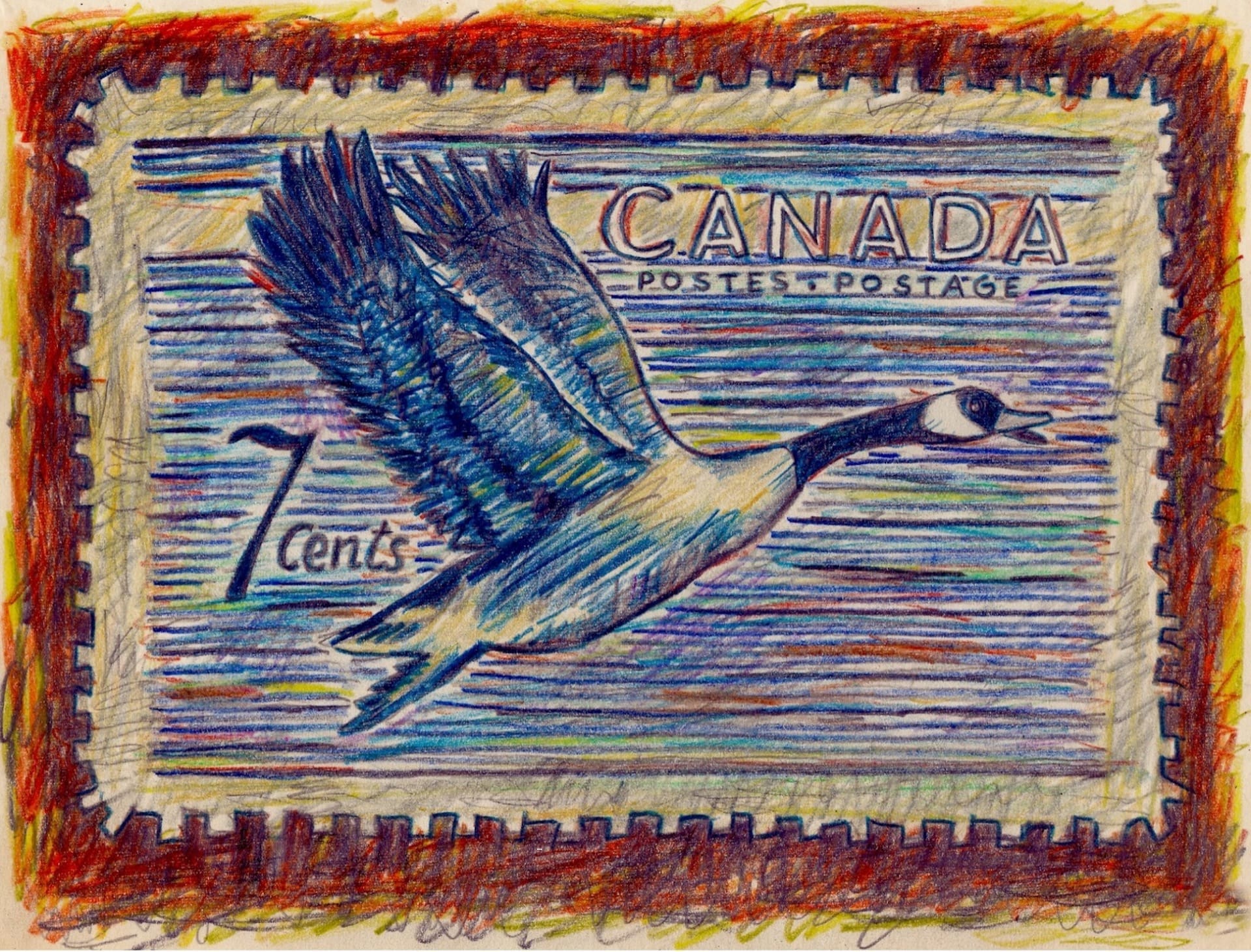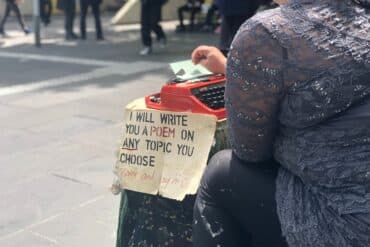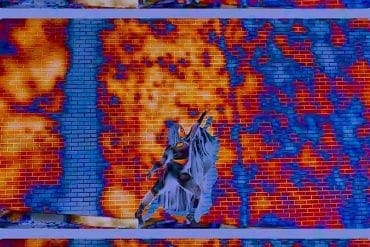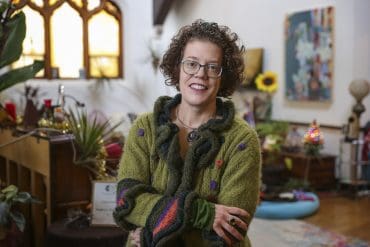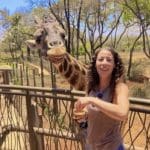You Need to Know How to Escape the Perils of Capitalist Mental Entrapment
Author’s Memo
I’m Laura, a self-reflexive Anthropologist. In this four-part series, I’ll take you back through my journey from the beginning. To explore how the conditioning of the Western environment I was born into served in disconnecting me from my own inner authenticity. Leaving me feeling lost and trapped in the perils of a capitalist mentality – chasing the ideals of what society wanted me to become. I’ll then reveal how I overcame my mental health challenges and reconnected with my true self. Discovering the benefits of holistic therapies and shamanic healing. With the aim of highlighting the importance of maintaining your connection to your true self and your intuition. An empowered inner authenticity that supersedes the pressures faced by twenty-first century generations – striving for an unattainable false perfect ‘self’.
‘In this four-part series, I’ll take you back through my journey from the beginning. To explore how the conditioning of the Western environment I was born into served in disconnecting me from my own inner authenticity.

“I literally feel like I wanna kill myself: I don’t know what to do. I wanna end my life so much because I am so unhappy and even thinking of ways of doing it. It’s horrible. I need a break; I need to just get away. I’m on bloody anti-depressants. I am not happy in my job, and I am not happy where I am”. (Email sent, 2013).
~
I wrote this email to one of my family members in a desperate cry for help. From the outside my life appeared somewhat ‘perfect’. I had a successful job working for an international corporation in London. My social media boasted an enviable number of friends. And my personal life consisted of attending glamorous parties. But in my endeavour to achieve a Western ideal of a privileged lifestyle. I ended up changing so much of myself that I did not know who I was anymore. My whole sense of self-worth was tied into a perceived pressure to perfect, compete and succeed.
Leaving me trapped in a cycle of comparing my life to others and never feeling good enough. This mental entrapment was conveyed in my email… of wanting to escape the false perfect self that capitalist ideals had created within me. Unhealthy expectations that led me to develop multiple mental health challenges; as I battled daily with anorexia nervosa, body dysmorphia and an unstable sense of identity.
So, what brought me to this point of despair? Why was I pursuing a pathway that was clearly going against myself – both physically and mentally? And how did I eventually break free from a capitalist mental entrapment and heal?
Just Being Me….
I remember dancing in my bedroom. Mariah Carey, I think? Or Whitney. Either way, I was bopping and twirling around to the rhythm of the music; singing as well. I used to love singing, anything creative really; poetry, arts and crafts. I felt drawn to performing – on stage. In all my home videos, you would see me, front and centre, joking around and putting on a show for the camera. I was so confident and buoyant in myself; so carefree… An adventurer too. I loved exploring and going for long walks, getting lost in nature. There was something so awe inspiring about being alone in a wild forest; the cool stillness of the trees allowed me to tune in with my senses and feel into myself more.
Back then, around the age of 11, I was just being me. Connected with all parts of myself and open to the world around me. Life felt exciting…One of the most exciting moments came during my last year of primary school. I heard the news that my local theatre was holding auditions for their Christmas pantomime. I started to recall all the times I had been to watch the shows with my family. Now it could be me up there, on stage. This was my chance. I couldn’t wait to tell my parents and ask if they could take me.
Creativity and Societal Invalidation
As soon as I got home from school, I hurried into the lounge to share the news. My dad was watching TV and turned around from the sofa…
“You’re not going to the audition … It’s a waste of time. You won’t become an actress – hardly anyone makes it in acting. It’s not a real job or a real career. You can’t just do what you want in life. I’m sure everyone would love to be paid to be in Hollywood films. But life just doesn’t work like that”.
A part of myself shrank as my dad’s commanding tone cut through me. In that moment, I felt incredibly stupid, naive and silly… as if I was so wrong for feeling my excitement. For having the belief that I could be good enough to do the audition – or even any type acting/performing. It’s not that I wanted to be an actress, I wasn’t even thinking about what I wanted to be ‘when I grow up’. I was just diving into my passions and interests as they naturally arose. But this strong reaction against what I felt was right shifted my whole sense of perception. Where I began to question my instincts. To doubt myself. Judging whether my own thoughts and feelings were in fact… Wrong… or bad even.
“You’re not going to the audition … It’s a waste of time. You won’t become an actress – hardly anyone makes it in acting. It’s not a real job or a real career. You can’t just do what you want in life. I’m sure everyone would love to be paid to be in Hollywood films. But life just doesn’t work like that”.
I ended up not going to the audition – I didn’t want to argue with my dad. At the time, it was a perspective that I was too young and inexperienced to challenge. But looking back, I realise that it was rooted in societal expectations of capitalism. A system based on motivating principles of maximum productivity and profitability. That devalues meaningful pursuits through the commodification of almost all human activity. Being the son of a Caribbean immigrant, there was more pressure on my dad to achieve within these parameters and conform to cultural norms. So, it would make sense why he viewed my creative endeavours as a ‘waste of time ‘– because they cannot be reliably monetized.
Becoming disconnected: Abandoning My inner Authenticity
Up until this point – I trusted myself completely. But now it didn’t feel safe to be me anymore. I was only going to be further exposed to this societal invalidation when I started secondary school. The curriculum reinforced the same message as my dad, conforming with the capitalist ideal of economic prosperity. Overtime, I felt pressured to fit in with an educational environment that alienated intrinsic aspects of myself. The teachers prioritised more economically productive subjects, whilst ignoring environmental studies and downplaying creative classes. Everything it seemed was geared towards steering me further towards societal expectation of who I should become. And further away from my true self, my true creativity and who I really was.
It was these influences that sowed the seeds for what was to become an unhealthy and dangerous disconnection. At the time, I just needed guidance and encouragement in understanding how I can positively relate to my true self. But this emotional support became less available after my parents divorced when I was 14. Because they were too busy dealing with the implications of separating. Leaving me feeling even more lost, where I slowly began to withdraw and no longer did the things I used to enjoy. I didn’t want to connect. The part of myself that once brought excitement was now replaced with shame and fear.
The alienation that I felt at school paired with the emotional unavailability at home, forced me to abandon my authenticity. To move forward… I felt like I had no choice but to operate from a place of disconnect, as I was too afraid to trust what I truly felt inside.
– It was a perfect storm, and I was lost at sea.
Credits
Featured image by Paul Fiedler for Unsplash
Image by Fikry Anshor for Unsplash
Learn More
New to autoethnography? Visit What Is Autoethnography? How Can I Learn More? to learn about autoethnographic writing and expressive arts. Interested in contributing? Then, view our editorial board’s What Do Editors Look for When Reviewing Evocative Autoethnographic Work?. Accordingly, check out our Submissions page. View Our Team in order to learn about our editorial board. Please see our Work with Us page to learn about volunteering at The AutoEthnographer. Visit Scholarships to learn about our annual student scholarship competition
Laura Babb is a self-reflective anthropologist, mental health researcher and an exciting new writer. Passionate about exploring cross-cultural transformational experiences in pursuit of spiritual and personal growth. Laura's extensive studies include Shamanic practices, sound healing and yoga, as well as ongoing research that critically examines the unhealthy power dynamics of capitalist ideals. After managing Eco-resorts and working on silent retreats across Europe, Laura is inspired to share her own healing journey of recovering from anorexia nervosa. Raising awareness around the benefits of holistic therapies for mental and physical wellbeing. She can be reached at Laura_lotty@hotmail.co.uk.


